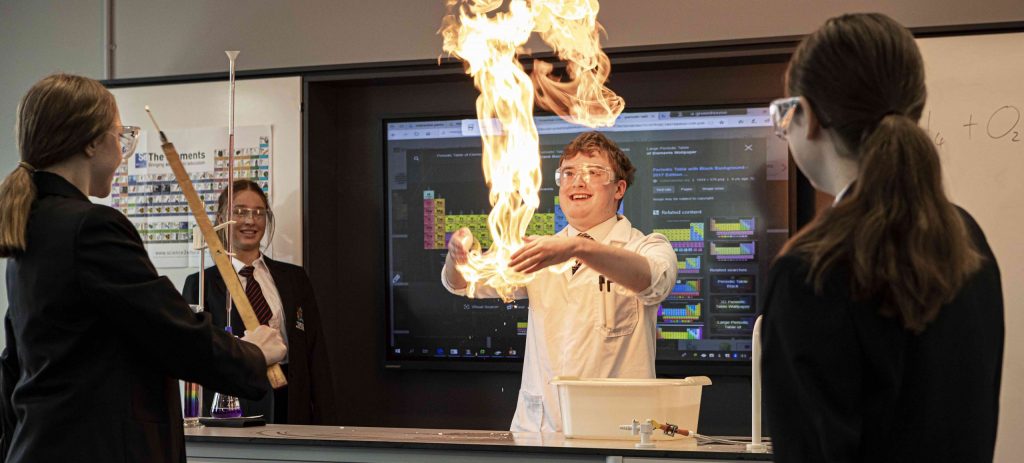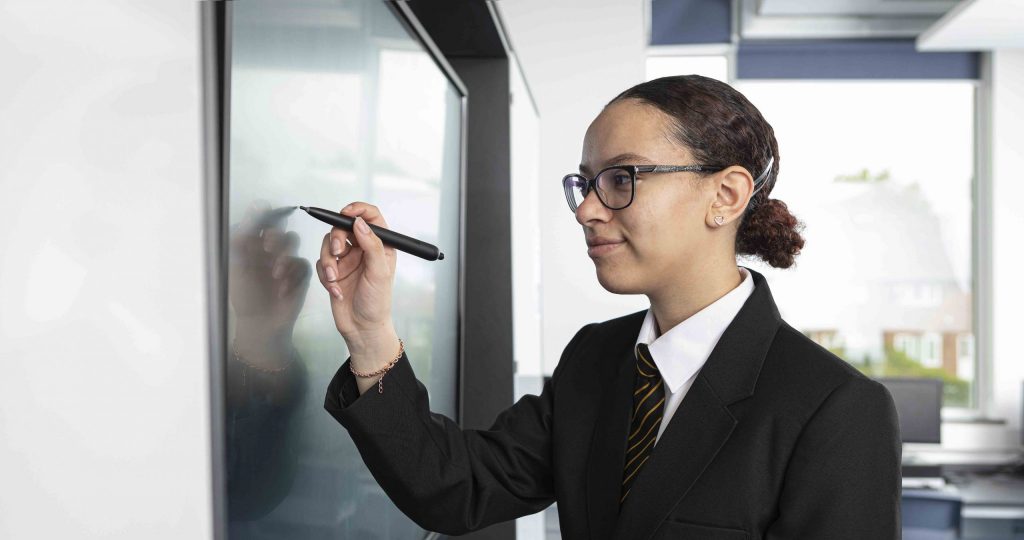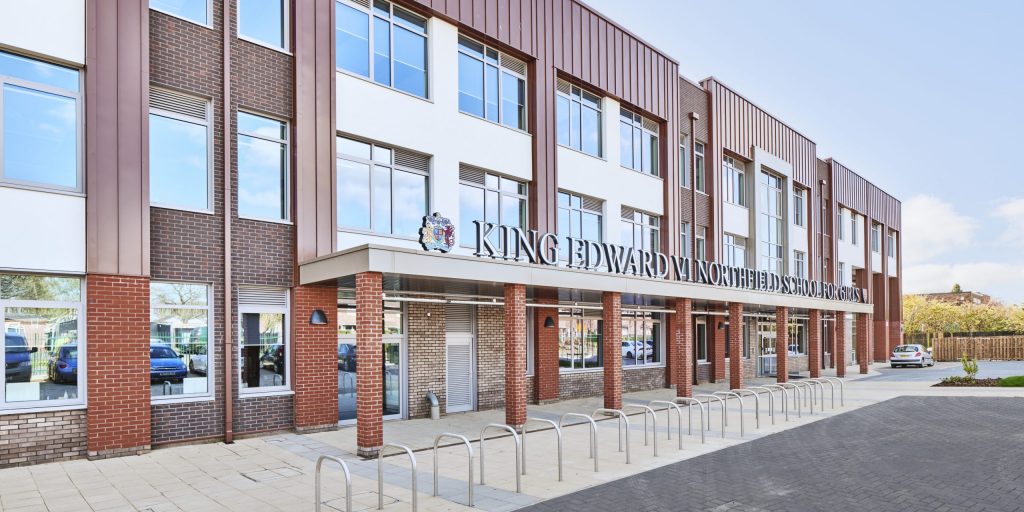Schemes of Learning
In years 7, 8 and 9, pupils explore the content specified by the National Curriculum for Key Stage 3 Mathematics. The curriculum is designed to support, challenge and stretch pupils and builds upon their Key Stage 2 knowledge and application.
Year 7 Scheme of Learning
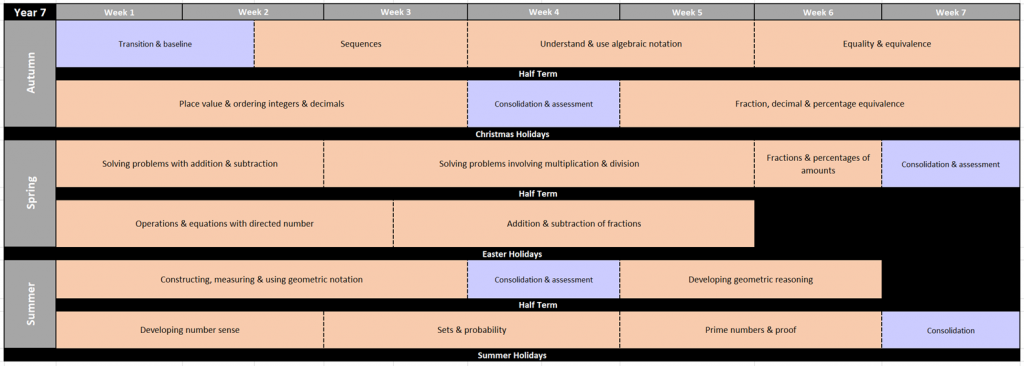
Year 8 Scheme of Learning
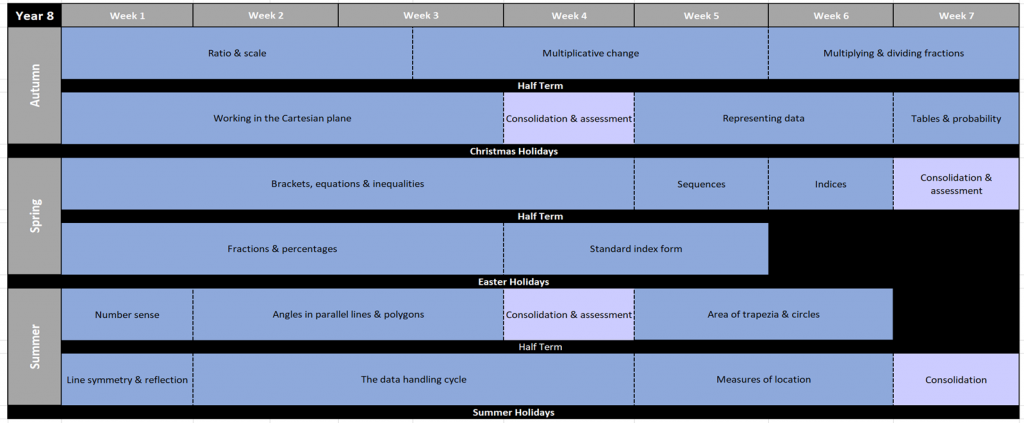
Year 9 Scheme of Learning
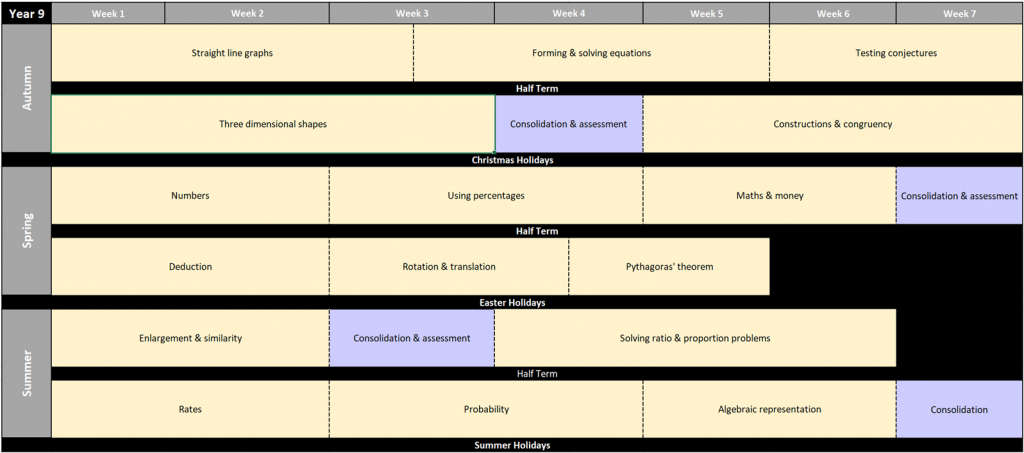
Assessment and Feedback
At the end of each unit, pupils complete a low-stakes assessment allowing them to consolidate their learning and close any gaps in their knowledge. A more formal assessment takes place each term, based on the content they have been learning in lessons. Following these assessments, pupils receive an in-depth analysis, detailing their areas of strength and development. Homework is set weekly, through a combination of paper-based and online homework. All pupils are subscribed to the website Mathswatch where they complete their online homework and work independently to further progress.
Extra-Curricular Activities
A group of pupils from each year group take part in the MyTutor programme, where they receive extra one-to-one tuition after school. This takes place online, giving pupils the chance to work on a variety of topics to support their learning in the classroom.
Pupils are invited to a weekly maths club where they tackle interesting problems that help to deepen their knowledge of mathematics. Some of the activities include Mystic Rose, Pascal’s Triangle and building 3D shapes. Maths club is an enjoyable learning experience that allows pupils to apply maths to a variety of scenarios.
Across Key Stage 3, pupils take part in workshops encouraging them to see where mathematics is used in everyday life such as finance. Pupils listen to guest speakers explain how they use maths in their job roles, promoting future career paths.
A selection of pupils across Key Stage 3 take part in the annual UK Junior Mathematical Challenge which is a competition designed to encourage mathematical thinking and problem solving. Pupils compete against other schools across the country and the most successful pupils receive either a bronze, silver or gold award.
